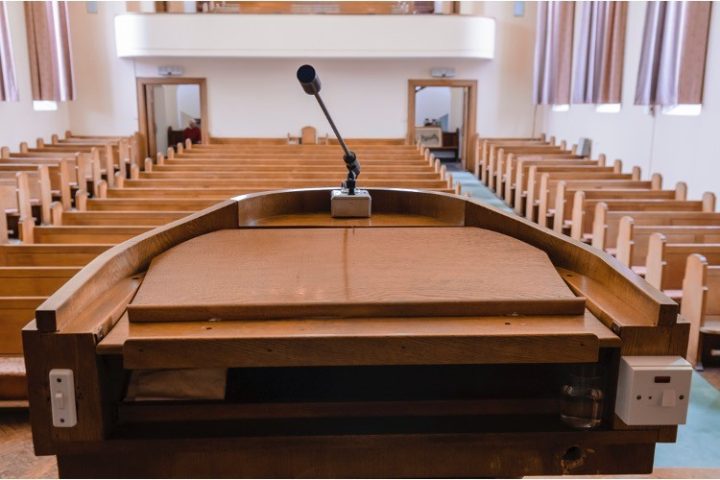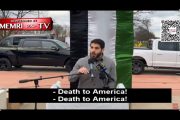
After promoting his own campaign from the pulpit for a seat on the City Council of Newport News, Virginia, Pastor Willard Maxwell of New Beech Grove Baptist Church found himself under investigation by local authorities.
A woman familiar with Maxwell’s alleged breach of federal law reported him to local authorities. She included a video of his remarks with her complaint. In that two-minute video, Maxwell said, “We have signs out there. If you want to take a sign to your house that would be great. Anytime you want to donate $5, $25 — it doesn’t matter. Or get other people to donate. I would really appreciate it.”
He then addressed the constraint put upon such activities by the Internal Revenue Service: “Now I know a lot of people say you can’t use certain things or say stuff at church…. Republicans and Democrats alike have been trying to tell me I can’t say nothing. Man, if I can’t say nothing, you can’t say nothing.”
On October 17, the Commonwealth’s Attorney Howard Gwynn responded to the complaint: “The video that you sent is very disturbing. Please be assured that this matter is under investigation and is being taken very seriously.”
It’s far from clear exactly what local, municipal, or state violations might be involved here. If the violations relate to the Johnson Amendment — the part of the IRS code that infringes on the freedom of pastors to speak on political issues from their pulpits under pain of losing 501(c)(3) status — it’s unclear just how Gwynn would be involved in enforcing that federal law.
That federal law passed in 1954 with nary a peep from any of the American pastors whose right to speak freely from their pulpits was being restricted. The Johnson Amendment is named for then-Texas Senator Lyndon Johnson, one of the most notoriously corrupt politicians of the day. Johnson’s litany of illegal activities had been exposed by local pastors, and in retaliation Johnson proposed the amendment.
The offending language from the IRS code reads:
Under the Internal Revenue Code, all section 501(c)(3) organizations are absolutely prohibited from directly or indirectly participating in, or intervening in, any political campaign on behalf of (or in opposition to) any candidate for elective public office.
Contributions to political campaign funds or public statements of position (verbal or written) made on behalf of the organization in favor of or in opposition to any candidate for public office clearly violate the prohibition against political campaign activity.
Violating this prohibition may result in denial or revocation of tax-exempt status and the imposition of certain excise taxes.
When he was informed of the investigation by local authorities, Pastor Maxwell responded that he has for years let various political candidates come to speak at his church: “I let Democrats come. I let Republicans come. The individual who is running against me [for City Council] even came and spoke from my pulpit. The rule is: whatever you do for one, you gotta let him do for all.”
He went further:
Anytime anyone wants to come to the church and speak about their campaign, whether I agree with them or not, I let them say whatever they need to say, and garner whatever support they need.
They pass out their literature, they pass out their signs, they say whatever they need to say. And I’ve done that forever.
Whether this molehill turns into a mountain remains to be seen. What popular Christian writer and speaker Eric Metaxas can’t abide is why American pastors let this Johnson Amendment slide into a bill to become federal law in the first place. Writing in his latest book, Letter to the American Church, Metaxas said:
It was in 1954 that then-Senator Lyndon Johnson introduced an amendment to the U.S. tax code prohibiting churches — and any other nonprofit organizations — from taking a public stand on political candidates. If anyone from a pulpit dared to endorse a candidate, that church’s [tax] exemption would be repealed.
It is astonishing that pastors in American allowed this wild idea to go uncontested. In this they behaved rather like many of the submissive pastors in Germany two decades earlier.
Of course, for American pastors meekly to submit to anything like this is far more shocking, given our own history of religious liberty and freedom of speech.
Metaxas then added ominously, “If the churches in America are not free to speak on any topic and in any way that they choose — and if they voluntarily go along with this view — then no one in America is truly free, and America itself has effectively ceased to exist.”



